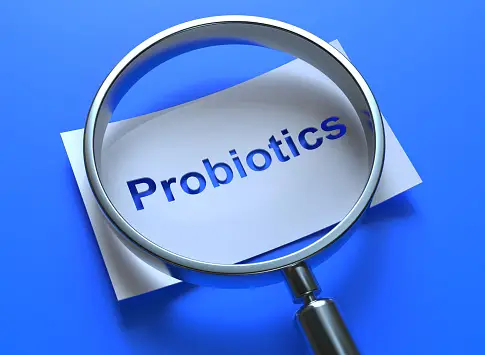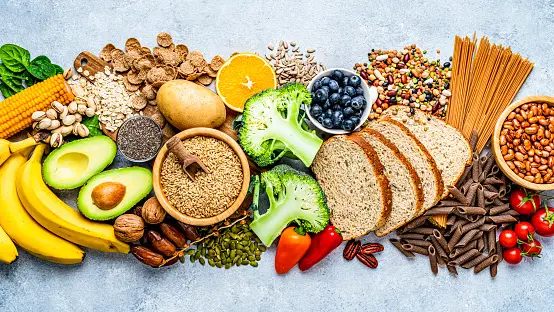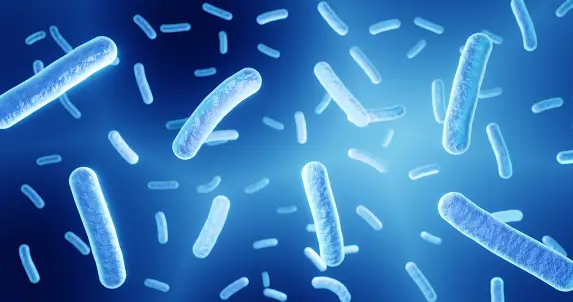Prebiotics, a fundamental component of a healthy diet, have garnered significant attention in the realm of nutritional science and gut health. There are over 100 trillion microorganisms in our digestive tracts, mostly bacteria. The gut microbiome is the aggregate term for these organisms.
Good bacteria make up the great majority of the microbiome. The main function of good bacteria is to balance out the harmful ones and maintain intestinal health. They also provide additional health advantages.
However, occasionally the equilibrium between beneficial and harmful bacteria is upset. That’s the role of probiotics. Live yeasts and bacteria make up probiotics. To rebalance the healthy and bad bacteria in your stomach, they refill it with more beneficial bacteria.
Prebiotics are less well known, yet they are just as crucial for preserving a healthy microbiome.
Table of Contents
Prebiotics: what are they?

Prebiotics are non-digestible food components that beneficially affect the host by selectively stimulating the growth and/or activity of one or a limited number of beneficial bacteria in the gut. They are essentially a type of dietary fiber that serve as food for probiotics, the beneficial bacteria in the intestines.
Certain foods contain components that your intestines aren’t able to properly digest, such as prebiotics. Prebiotics include pectin, inulin, oligosaccharides, and certain starches. They are often most prevalent in diets high in fiber.
Probiotics and prebiotics complement each other. Live microorganisms known as probiotics help to keep the good to bad bacteria balance in your digestive tract stable or even improve it. Probiotic-containing foods include pickles, kombucha, sauerkraut, yogurt, kimchi, and certain cheeses.
On the other hand, prebiotics provide nourishment for gut bacteria and promote their growth. When we provide bacteria with the nutrition they require to survive, our bodies in turn remain healthy.
Types of Prebiotics

There are several types of prebiotics, including:
- Inulin: Found in chicory root, bananas, asparagus, and onions.
- Fructooligosaccharides (FOS): Found in fruits and vegetables like bananas, onions, and garlic.
- Galactooligosaccharides (GOS): Found in dairy products, beans, and certain root vegetables.
- Mannanoligosaccharides (MOS): Found in yeast and fungi
Benefits of Prebiotics

- Improved Gut Health: Prebiotics stimulate the growth of beneficial bacteria, which can enhance gut health and digestion.
- Enhanced Immune Function: By promoting a healthy gut microbiota, prebiotics can support the immune system.
- Improved Mineral Absorption: Prebiotics can improve the absorption of minerals such as calcium and magnesium, which are essential for bone health.
- Reduced Risk of Certain Diseases: A healthy gut microbiota is associated with a lower risk of conditions like obesity, type 2 diabetes, and heart disease.
- Anti-inflammatory Effects: Prebiotics may help reduce inflammation in the body, which is beneficial for overall health.
How Prebiotics Work

When prebiotics reach the colon undigested, they undergo fermentation by the gut microbiota. This fermentation process produces short-chain fatty acids (SCFAs) like butyrate, propionate, and acetate, which have various beneficial effects on gut health and overall well-being.
Prebiotics’ possible health advantages

Foods high in probiotics can benefit your gut microbiome and general well-being. Scientists are continually discovering more advantages of prebiotics. However, studies have shown a higher prebiotic consumption to
- Enhanced intestinal calcium absorption from diet
- Improved management of blood sugar
- An effective immune system
- A lower chance of colon cancer
Prebiotics may have functions in your microbiome other than just feeding it. According to a recent study, individuals who ingested 30 grams of meals high in inulin, a plant-based prebiotic, every day for two weeks were more likely to choose medium- to low-calorie foods over high-calorie ones.
Additionally, when presented with high-calorie items, their MRIs revealed less activity in the reward network of their brains. According to the study, consuming prebiotic foods may facilitate better meal decisions.
Addition of prebiotic foods to your diet

A wide range of fruits, vegetables, and high-fiber cereals contain prebiotics. Among the finest prebiotic foods are the following:
- Garlic
- Bananas
- Asparagus
- Jerusalem spinach
- Beans
- Onions
- Whole-grain and wheat items, like breads and cereals
Not everyone benefits from increasing their intake of prebiotic foods. For instance, a diet high in prebiotics may exacerbate symptoms for some individuals with diarrhea-predominant irritable bowel syndrome (IBS). On the other side, prebiotics may help those who suffer from constipation by improving intestinal function.
The secret is to figure out what prebiotic food balance is best for you. One way to prevent potential stomach pain is to increase the amount of prebiotic foods gradually and start out gently.
Prebiotics vs. Probiotics

While prebiotics are non-digestible fibers that feed beneficial bacteria, probiotics are live beneficial bacteria that are ingested directly. Both play complementary roles in maintaining a healthy gut microbiome.
In summary, prebiotics are essential components of a healthy diet that support the growth of beneficial gut bacteria, contributing to improved digestive health, enhanced immunity, and overall well-being.
Finally
In conclusion, prebiotics play a crucial role in promoting a healthy gut microbiome, which is essential for overall well-being. These non-digestible fibers selectively nourish beneficial bacteria, leading to improved digestive health, enhanced immune function, and better absorption of vital minerals. By incorporating prebiotic-rich foods such as garlic, onions, bananas, and whole grains into our diets, we can support the growth of beneficial gut bacteria and harness the numerous health benefits they offer.
As research continues to unveil the extensive impact of prebiotics on our health, it becomes increasingly clear that these dietary components are indispensable for maintaining optimal digestive health and preventing various chronic diseases. Thus, emphasizing the intake of prebiotics can be a key strategy in achieving a balanced and healthy lifestyle.
